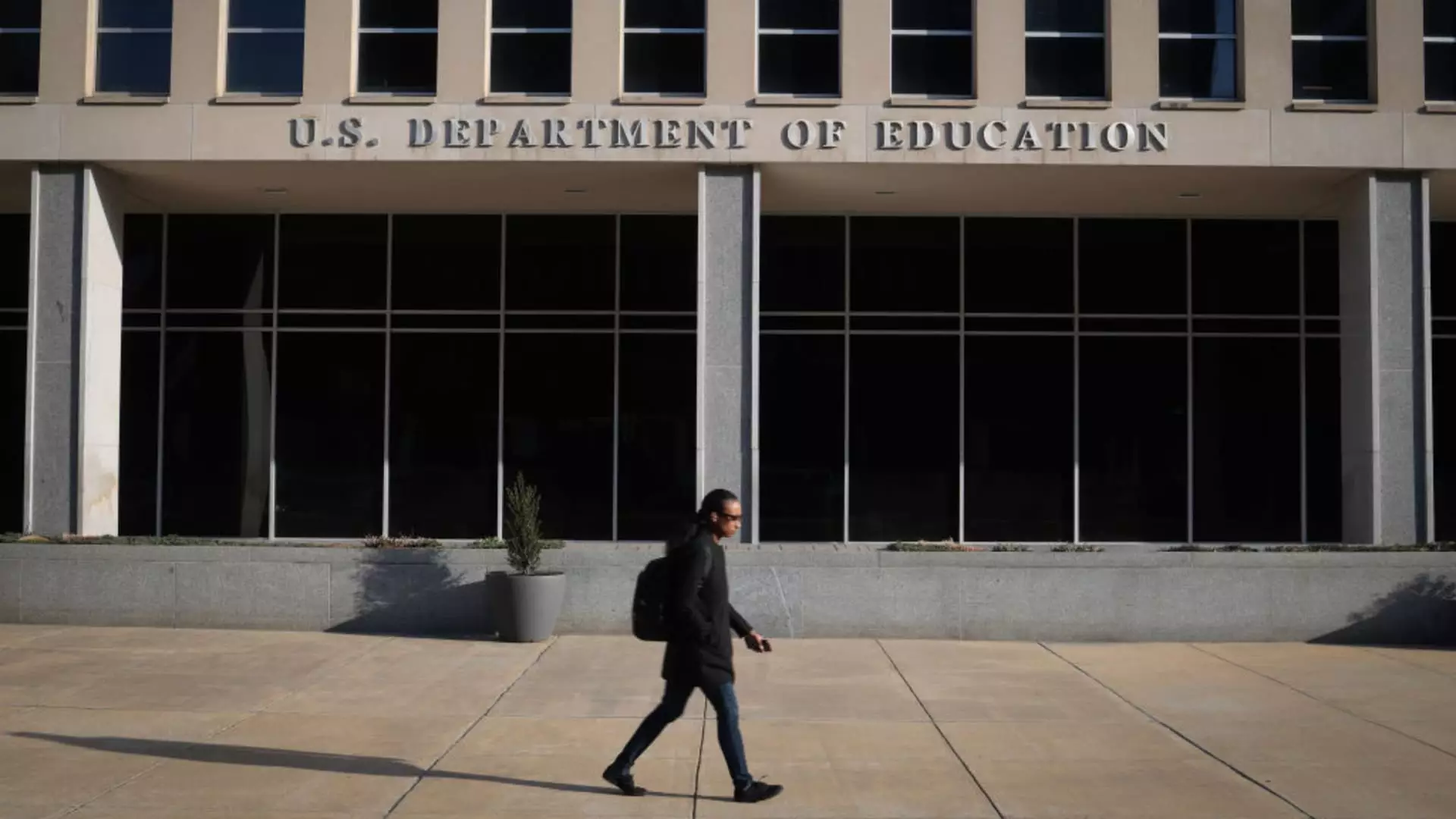In a bold move, the American Federation of Teachers (AFT) is taking the U.S. Department of Education to court, challenging recent regulatory changes that have severely restricted access to income-driven repayment plans (IDR). This lawsuit highlights a critical issue: the systematic dismantling of vital support for student loan borrowers under the Trump administration. The actions taken have not just been a bureaucratic mishap; they represent an alarming intent to further disenfranchise working-class Americans struggling with student debt.
AFT President Randi Weingarten has articulated this sentiment clearly: the halt on IDR plan applications exacerbates the financial strain already felt by millions. The original purpose of these IDR plans was laudable and straightforward, aiming to alleviate the crippling weight of student loan debt by tying monthly payments to income levels. As it stands, the decision to suspend these applications doesn’t merely freeze the system; it actively makes life harder for those who sought education as a path to stability and advancement.
The Numbers Speak: Millions Affected
Recent data reveals the alarming scale of this predicament. Over 12 million borrowers were depending on IDR plans as of September 2024. With these plans typically forgiving remaining debt after 20 to 25 years of diligent payments, it’s evident that these tools are not just financial arrangements—they are lifelines. The hasty removal of access to these plans is emblematic of a broader crisis, with precarious borrowers finding themselves on increasingly shaky ground. The argument from the Education Department—claiming compliance with a recent judicial verdict—fails to resonate when juxtaposed against the existential realities faced by the borrowers.
Yet, the administration’s rhetoric suggests a misunderstanding—or perhaps a complete disregard—of the nuances involved in student debt management. Underlying the Department’s justification is a troubling ideology that prioritizes legal technicalities over human lives. Consequently, millions find themselves within a bureaucratic limbo, caught in the crossfire of politics and policy.
Real People, Real Consequences
There’s a palpable sense of desperation washing over the student borrower community, exacerbated by political maneuvering that treats student loans like chips in a game rather than debts that affect real people. Amid soaring living costs and stagnant wages, the Department of Education’s failure to provide workable repayment options is functionally sabotaging borrowers’ chances of stability. Mike Pierce, the executive director of the Student Borrower Protection Center, aptly encapsulates the weight of this struggle, asserting that borrowers are “desperate for help,” a sentiment echoed at kitchen tables across the nation.
While the lawsuit progresses, the stakes could not be higher. The broader implications of these developments reach beyond mere inconvenience; they threaten the educational attainment and, by extension, the socioeconomic mobility of entire generations. The repercussions of neglecting these very much alive issues are palpable, and those in power must be held accountable.
Defending Workers’ Rights to Education
This legal battle underscores the need for labor unions and advocacy groups to stand firm against outdated, obstructionist policies. By challenging the administration’s decisions, the AFT is not merely fighting for a few repayment forms; they are defending the principle that education should be an accessible route to success, not a trap laden with insurmountable debt.
The urgency of this issue is crystal clear: education is a right, and financial pathways must reflect that principle. It’s imperative that the government not only re-evaluate its strategies but also recognize its moral obligation to support those whose ambition compelled them to take on student loans. Today’s actions will shape the future for millions, and it is time to prioritize the wellbeing of constituents over political posturing.

